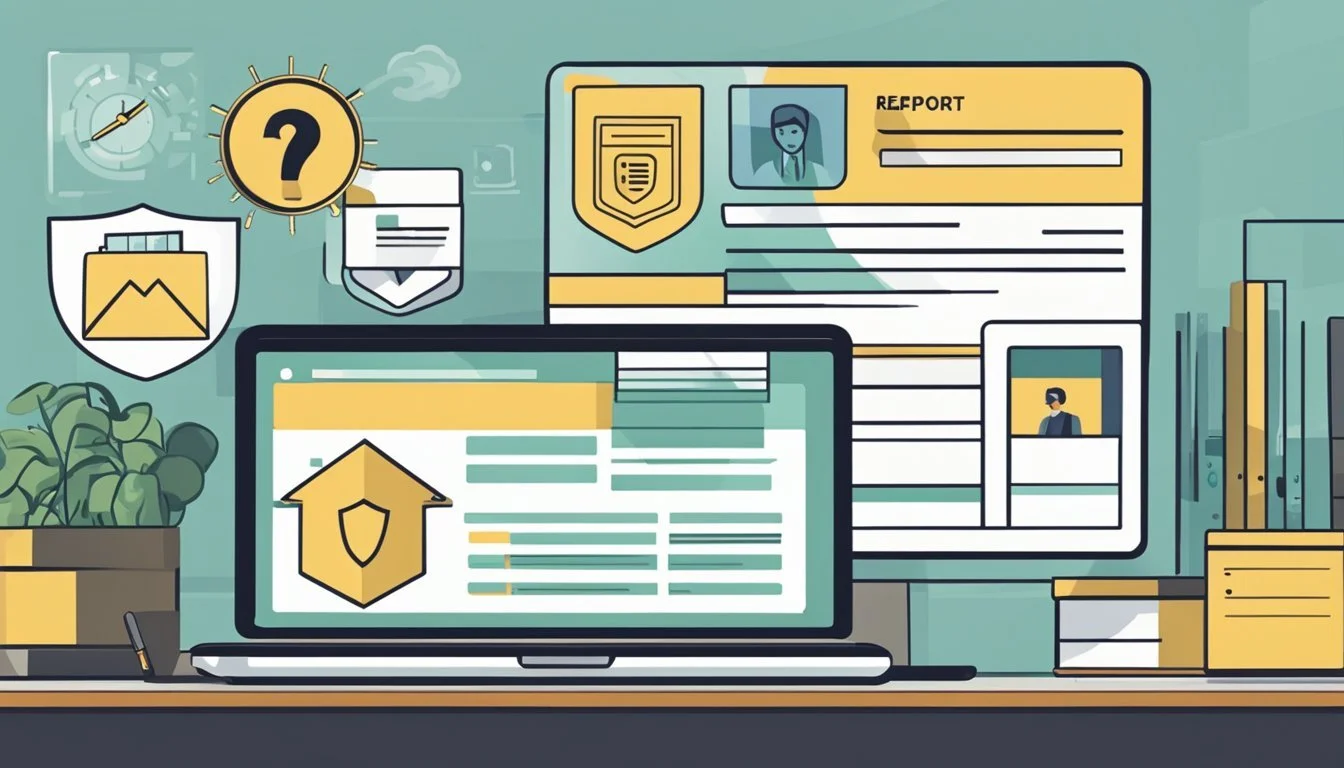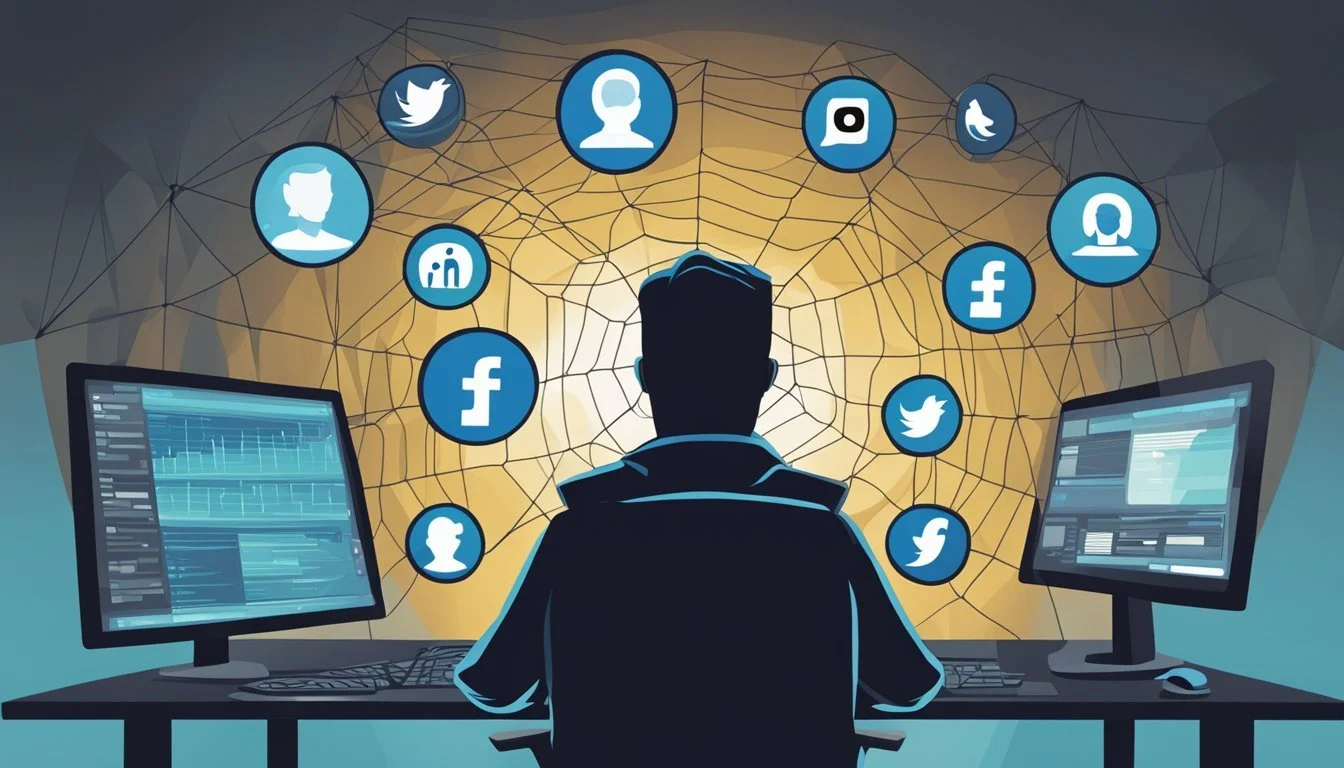8 Ways to Protect Your Online Reputation from a Narcissistic Cyberstalker
Essential Tips and Strategies
In today's digital age, maintaining a positive online reputation has become essential, especially when faced with threats from a narcissistic cyberstalker. These individuals often use the anonymity of the internet to manipulate and harm their targets, making it crucial to take proactive steps in safeguarding one’s digital identity.
How can you protect yourself from such online threats while preserving your digital footprint? This article outlines practical strategies to fortify your online presence against malicious activities. Readers will discover effective measures to ensure their personal and professional lives remain uncompromised in the face of these challenges.
1) Increase Privacy Settings on Social Media
Enhancing privacy settings on social media can be a crucial step in protecting one's online reputation from a cyberstalker. Each platform offers various options to control who can see your information, posts, and personal details.
On Facebook, users can update their privacy settings by navigating to their profile, clicking on 'About', and adjusting the visibility of different sections such as work, education, and contact info. It's important to restrict this information to trusted contacts only.
Similarly, TikTok allows users to restrict who can see their profile, comment on their videos, and view their liked content. Disabling ad personalization can also reduce the amount of tracking.
On LinkedIn, users can manage privacy by making their profiles visible only to their connections. This can help in limiting the exposure of professional information to potential stalkers.
For those on other platforms, following guides and suggestions for social media privacy settings can be beneficial. Regularly reviewing and updating these settings ensures that personal information remains secure.
By taking these steps, individuals can significantly reduce the risk of unauthorized access to their personal details online.
2) Utilize Two-Factor Authentication
Two-factor authentication (2FA) adds an extra layer of security to online accounts. By requiring not just a password but also a second form of verification, it significantly reduces the chances of unauthorized access. This is especially important when dealing with sensitive information that a cyberstalker might target.
To set up 2FA, users need to go to their account settings. Look for options labeled two-factor authentication, two-step verification, or multi-factor authentication. This can often be found in the security or privacy section of the settings.
The most common forms of 2FA include receiving a code via SMS, using an authenticator app, or a hardware token. An authenticator app like Google Authenticator generates codes that are time-sensitive and unique to each login attempt.
Starting with the most sensitive accounts is crucial. These include bank accounts, email, social media, and any platforms used for online payments. Adding 2FA to these accounts makes it much harder for a narcissistic cyberstalker to gain unauthorized access.
Using 2FA on all significant accounts can bolster your protection. Regularly updating your 2FA settings and methods is also advised to stay ahead of potential threats. Protecting your online reputation requires ongoing vigilance and the strength that 2FA provides.
3) Regularly Monitor Your Online Presence
One essential method to protect your online reputation against narcissistic cyberstalkers involves regularly monitoring your online presence. Staying aware of what is posted about you helps you identify potential threats early.
Conduct frequent searches of your name or brand on popular search engines. This practice provides a clear picture of your online footprint. Use specific tools to set up alerts for new mentions.
Engage actively on social media to manage comments and feedback. Responding promptly to negative and positive interactions can mitigate potential reputational damage. Utilize the analytics and monitoring features provided by these platforms.
Monitor review sites if you run a business. Regularly checking these sites ensures you can address any negative reviews swiftly. Correcting misinformation can make a significant difference.
Lastly, consider using specialized software for more comprehensive monitoring. Tools like Google Alerts or professional reputation management services can help track your digital presence continuously. This proactive approach helps maintain control over your online image. For more detailed guidelines, you might find this guide on managing online reputation useful.
4) Report Abusive Behavior to Platform
Report abusive behavior to digital platforms immediately. Platforms like Twitter and Facebook have built-in reporting tools. Users should describe the incident clearly, detailing the type of threat - whether it's sexual, exploitative, or physically threatening.
Utilize these tools effectively. Follow the platform's guidelines for reporting. Ensure all necessary information is included for a swift review.
Document the abuse. Take screenshots and note down dates and times. This documentation supports your report. Good records help the platform verify and assess the situation.
Flagging options are also available. Use these to draw attention to inappropriate content. The quicker you act, the faster the platform can respond.
For detailed information on reporting to specific platforms, the Online Harassment Field Manual provides step-by-step guidance.
5) Consult a Cybersecurity Expert
Engaging a cybersecurity expert can significantly bolster your defenses against a narcissistic cyberstalker. These professionals possess the technical skills to identify and mitigate threats quickly.
A cybersecurity expert can perform a comprehensive assessment of your digital footprint. They will look for vulnerabilities that a cyberstalker might exploit and recommend practical steps to secure your information.
Moreover, experts can assist in configuring security tools and software. They are knowledgeable about the latest technologies, such as VPNs and secure communication methods, that can help shield your online activities.
Hiring a cybersecurity expert can also provide you with peace of mind. Knowing that a professional is monitoring your online presence reduces the mental stress associated with cyberstalking.
Lastly, cybersecurity experts can aid in gathering and preserving evidence of cyberstalking. This can be crucial if you decide to take legal action against the perpetrator.
Consulting a professional ensures that you have a knowledgeable ally to help navigate the complexities of online security. For more information on protecting your privacy, you can read about how to protect your privacy and stay safe.
6) Use Strong, Unique Passwords
Using strong, unique passwords is essential in protecting online accounts from unauthorized access. A password manager is an effective tool for creating and storing these passwords. It can generate complex passwords and store them securely, ensuring that each account has a different, strong password.
Avoid using common phrases, song lyrics, or movie quotes. Passwords should include a mix of uppercase and lowercase letters, numbers, and symbols if the account allows it. This makes it significantly harder for hacking programs to guess.
It's also critical to update passwords regularly. If an account offers two-factor authentication (2FA), enable it. This adds an extra layer of security by requiring a second form of verification beyond just the password.
By adhering to these practices, individuals can significantly reduce the risk of their credentials being compromised. Creating and maintaining strong, unique passwords are fundamental steps in safeguarding one's online reputation.
7) Limit Personal Information Shared Publicly
It's crucial to be mindful of the personal information shared on social media and other platforms. Cyberstalkers often exploit publicly available details to harass or manipulate.
Avoid disclosing sensitive information such as your home address, phone number, and birthdate. This reduces the risk of being targeted by harmful individuals.
Take advantage of privacy settings on social media. Platforms like Facebook and Instagram offer tools to control who can see your posts and profile information. Only share with trusted connections.
Think twice before posting about your daily routine or travel plans. Sharing real-time locations can make you vulnerable to stalking. Instead, consider posting updates after an event has occurred.
Review and clean up your digital footprint regularly. Delete old posts, photos, and accounts that no longer serve you. This limits the amount of traceable information available to potential stalkers.
Using these steps helps protect your online reputation from narcissistic cyberstalkers.
8) Enable Alerts for Account Activity
Enabling alerts for account activity is an essential step to protect your online reputation from a narcissistic cyberstalker. Notifications can provide immediate insight into any unauthorized actions taken on your account.
Most social media platforms and email services offer security alerts. These alerts notify you when someone logs into your account from an unrecognized device or location.
Setting up email and text alerts for account changes is crucial. Alerts can inform you if someone attempts to change your password or update your security settings.
Receiving real-time alerts allows you to react quickly. You can prevent potential damage by addressing suspicious activity as soon as it occurs.
Keeping these alerts active is not just about monitoring intrusions. They also serve as a constant reminder to stay vigilant about your online security practices.
Regularly review and update your alert settings. Make sure that they are configured to cover all critical activities related to your account.
By staying informed about account activity, individuals can safeguard their online presence effectively. This proactive measure helps to detect and mitigate threats posed by cyberstalkers.
Understanding Narcissistic Cyberstalkers
Narcissistic cyberstalkers possess distinct traits and employ specific tactics to harass and manipulate their targets. They often use the internet to project power, causing significant stress and harm to their victims.
Characteristics of Narcissistic Cyberstalkers
Narcissistic cyberstalkers frequently display grandiosity. They have an inflated sense of self-importance and an overwhelming need for admiration. These individuals often show a lack of empathy, disregarding the feelings and rights of others. Additionally, they might exhibit obsession and possessiveness towards their victims, leading to persistent online harassment.
Another hallmark of a narcissistic cyberstalker is their manipulative behavior. They use charm to lure victims in initially but can quickly turn hostile. Vindictiveness is another common trait, where they seek revenge for perceived slights or refusals. Their pathological lying can further complicate identifying and dealing with their actions.
Common Tactics Used in Cyberstalking
Narcissistic cyberstalkers often engage in cyberbullying and trolling. This can include sending threatening messages, spreading false rumors, or posting humiliating content. These activities are intended to harm the victim's reputation and psychological well-being.
They might use surveillance techniques, such as tracking online activities or hacking into social media profiles and email accounts. This level of intrusion can create a constant sense of fear and vulnerability in their victims.
Another tactic involves impersonation and identity theft. Cyberstalkers may create fake profiles to deceive the victim or others around them. They might also use these profiles to gather personal information or to further harass the victim. Maintaining anonymity through VPNs or other means allows them to persist while evading detection.
These actions can have severe repercussions on the victim's life, emphasizing the need for vigilance and protective measures.
Legal Protections and Resources
There are specific laws in place to combat cyberstalking. Additionally seeking legal action can help you protect your online reputation from such attacks.
Laws Against Cyberstalking
Cyberstalking is a criminal offense in many jurisdictions, and various laws address it directly. The Federal Code in the United States, for example, criminalizes the use of electronic communications to menace, harass, or stalk individuals. This legal framework includes emails, text messages, and social media interactions.
Additionally, many states have implemented their own cyberstalking laws. These regulations often provide for severe penalties, including fines and imprisonment, to deter such behavior. Filing a police report documenting the harassment is a crucial first step. Keeping detailed records of all interactions can support your case and help authorities take appropriate action.
Seeking Legal Action
To seek legal action against a narcissistic cyberstalker, it is important to gather and document all evidence of harassment, including screenshots, messages, and any other relevant communications. Consulting with an attorney who specializes in cyberstalking and online harassment can provide guidance on how to proceed.
A lawyer can assist in filing for restraining orders or protective orders, which legally bar the cyberstalker from further contact. Furthermore, you can consider civil lawsuits to seek damages for emotional distress or reputation damage. For individuals facing particularly aggressive online attacks, using online reputation management services can also help in mitigating and controlling the negative impact on your online presence.




